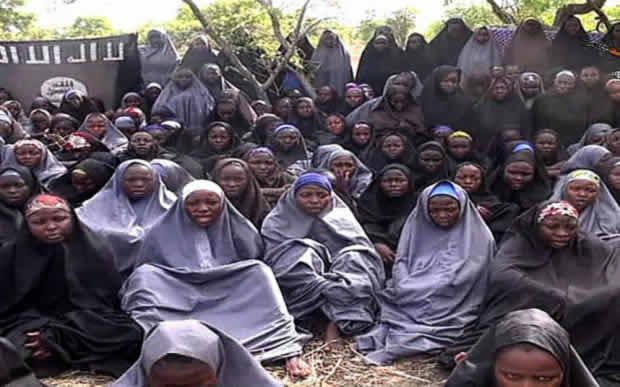By Boko Haram,Promise Dera
Copyright nigerianeye

A decade after the infamous 2014 abduction of 276 schoolgirls from Chibok Government Secondary School in Borno State, the United Nations Committee on the Elimination of Discrimination against Women (CEDAW) has disclosed that 91 of the Chibok girls remain either in captivity or unaccounted for.
The revelation, part of a damning inquiry report released following a two-week confidential mission to Nigeria in December 2023, exposes ongoing systemic failures in addressing mass abductions and supporting survivors.
The CEDAW delegation, which visited Abuja, Adamawa, Borno, Enugu, and Kaduna, described “grave and systematic violations” of women’s and girls’ rights in Nigeria, stemming from the Chibok abductions by Boko Haram and subsequent kidnappings by other armed groups.
The committee, the first UN body to visit Chibok Secondary School since the incident, found that Nigeria has failed to prevent targeted attacks on schools, protect girls from abduction, or provide adequate rehabilitation for survivors.
Out Of the 276 Chibok girls, 82 escaped independently, and 103 were released between 2016 and 2017 through prisoner exchanges. However, the report notes that the government has ceased negotiations with Boko Haram, leaving the fate of the remaining 91 girls unknown.
Survivors faced severe trauma, social stigma, and inadequate support, with many unable to return to their villages due to association with insurgents.
The 103 girls freed through negotiations received training, psychosocial care, and scholarships, primarily at the American University of Nigeria, but those who escaped independently have largely been left without counseling, education, or rehabilitation.
The inquiry extended beyond Chibok, documenting over 1,400 student abductions since 2014, driven by ransom demands, forced marriages, trafficking, and prisoner exchanges. Survivors endured brutal conditions in captivity, including starvation, beatings, forced religious conversion, and s3xual violence, with some giving birth in detention.
Those abducted for ransom by other groups faced repeated rape and physical abuse. Families, often bankrupted by ransom payments, received little state support.
CEDAW Chair Nahla Haidar condemned Nigeria’s “repeated failure” to protect women and girls, calling the Chibok abduction a catalyst for global awareness but part of a broader pattern of unchecked violence.
“These girls were failed twice—first during their abduction and again when abandoned post-release,” Haidar said, highlighting the plight of survivors in internally displaced persons (IDP) camps and the lack of destigmatization efforts for victims of rape and their children.
The committee’s mission included interviews with survivors at an Abuja IDP camp, meetings with the Women Development Department, defense and security officials, the National Agency for the Prohibition of Trafficking in Persons, and representatives from the Nigerian Armed Forces and Police Service Commission.
The report criticized Nigeria for failing to criminalize abduction and marital rape across all 36 states and for underfunding law enforcement to combat mass abductions.
CEDAW urged Nigeria to prioritize rescuing the 91 missing Chibok girls and others held by armed groups, adequately fund the police, and provide comprehensive support for survivors.
The full report, detailing findings and recommendations, is available online, serving as a stark call to action for a nation still grappling with the scars of a decade-long crisis.
Click to signup for FREE news updates, latest information and hottest gists everyday



